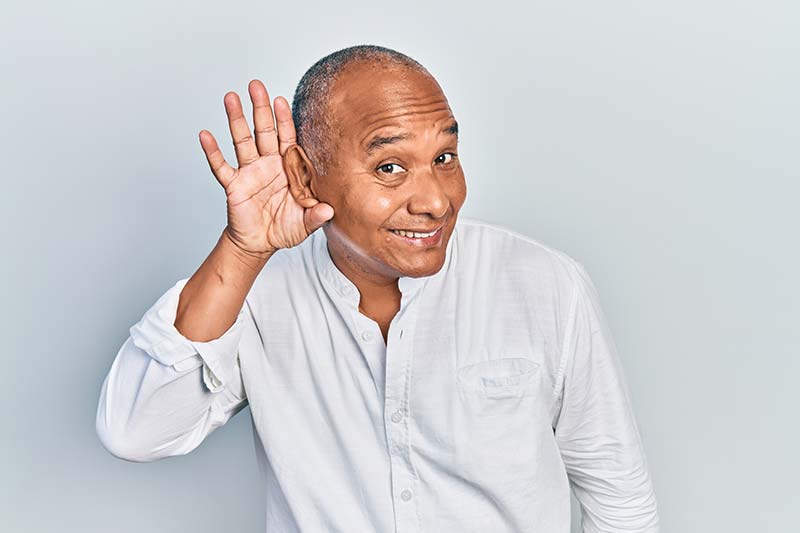Satellite Office
4660 Kenmore Avenue, Suite 416Alexandria, VA 22304
703-620-4300

July 18 is World Listening Day, which is a huge relief. Do I only need to listen one day a year? I wish someone had told me ages ago!
I’m only kidding — and if you’ve ever been in my office, I hope you realize that. I make it my business to try to be a good listener and leave every patient feeling like they’ve been heard and understood. You learn much more by closing your mouth and opening your ears.
But if positive listening habits don’t come easily to you, you’re not alone. Most interpersonal relationships I’ve encountered started with me being a poor listener. I didn’t take the time to understand the other person’s approach, opinion, or line of thinking.
Most people think they’re good at extrapolation, and I’m no exception. My brain likes to jump ahead, and when I think I know what someone will say next, I want to finish their sentence. It’s with good intentions — I think it shows how well I understand them! But, of course, it’s rude. Plus, I’m not always as psychic as I tend to think, and when I finish the other person’s thought incorrectly, it throws us both off guard. I work hard to restrain this impulse and stay engaged in what people say instead of what I think they will say.
One of my most valuable learning experiences in listening was when my dad was sick with two different types of cancers. I accompanied him on many doctor’s visits, and I always appreciated how well they’d listen to his concerns. He would sometimes go off-topic, and as a physician, I knew he wasn’t answering the questions in the way the doctors intended. But they would listen carefully, then redirect the conversation back to the information they needed.
Sometimes, they had to do that multiple times in a conversation, but they didn’t get frustrated, and Dad felt heard. This was extremely helpful for me to hear and it helped me adjust my thinking and how I listen to my patients. When you let people talk, you can often gain a wealth of information. It’s the best way to learn about their concerns. I try to put my patients at ease, but sometimes they have a worry that I’ve never considered. I can’t reassure them if I don’t know what their fears are. So, I need to listen before I speak.
Not surprisingly, listening is more than waiting for the other person to stop talking. If you’re biding your time until it’s polite to speak, you’re not absorbing the other person’s words. Worse, people can tell when that’s what you’re doing, and they’ll stop opening up to you. That’s the kiss of death for any doctor-patient relationship, so I strive never to get complacent. Learning to listen is a lifelong effort, and I’ve found the books “You’re Not Listening” by Kate Murphy and “I Hear You: The Surprising Simple Skill Behind Extraordinay Relationships” by Michael S. Sorensen to be very helpful in my quest for improvement in this critical area. To be clear, I still miss the mark and feel terrible I have derailed a conversation due to poor listening.
|
It’s a cliche because it’s true — we have two ears and one mouth, so we should listen twice as much as we speak. At the start of every year, I commit myself to listening better than the year before. I hope that if I’m ever off the mark, you’ll remind me that I can do better. I’ll be grateful for your feedback and ready to listen with an open mind. |
  |